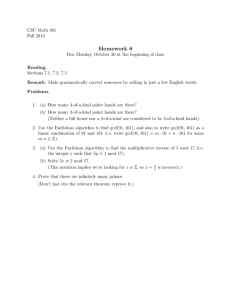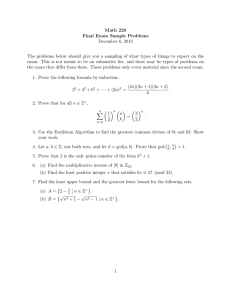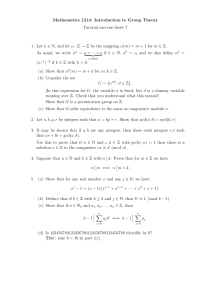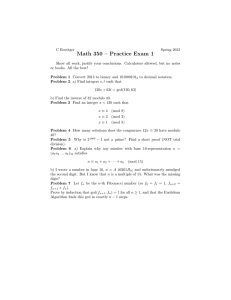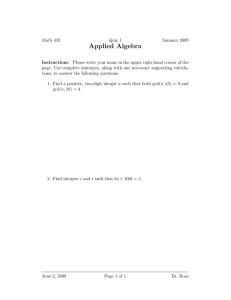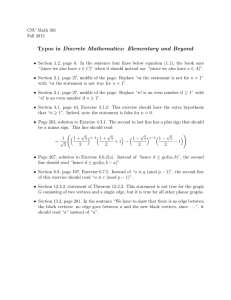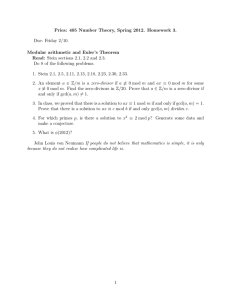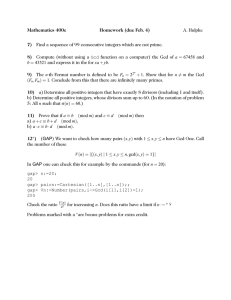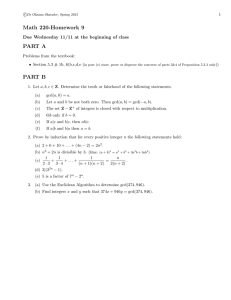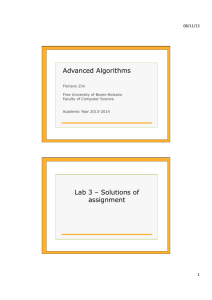COT 4100 Homework #5 Assigned: 11/2/99 Due: 11/9/99
advertisement
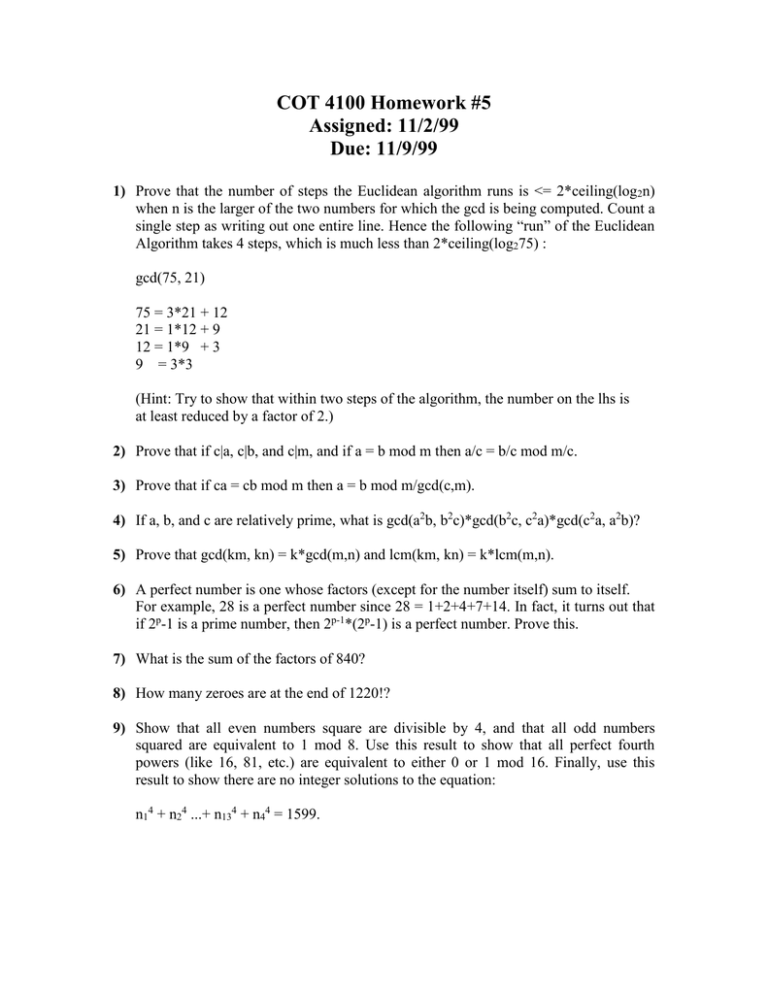
COT 4100 Homework #5 Assigned: 11/2/99 Due: 11/9/99 1) Prove that the number of steps the Euclidean algorithm runs is <= 2*ceiling(log2n) when n is the larger of the two numbers for which the gcd is being computed. Count a single step as writing out one entire line. Hence the following “run” of the Euclidean Algorithm takes 4 steps, which is much less than 2*ceiling(log275) : gcd(75, 21) 75 = 3*21 + 12 21 = 1*12 + 9 12 = 1*9 + 3 9 = 3*3 (Hint: Try to show that within two steps of the algorithm, the number on the lhs is at least reduced by a factor of 2.) 2) Prove that if c|a, c|b, and c|m, and if a = b mod m then a/c = b/c mod m/c. 3) Prove that if ca = cb mod m then a = b mod m/gcd(c,m). 4) If a, b, and c are relatively prime, what is gcd(a2b, b2c)*gcd(b2c, c2a)*gcd(c2a, a2b)? 5) Prove that gcd(km, kn) = k*gcd(m,n) and lcm(km, kn) = k*lcm(m,n). 6) A perfect number is one whose factors (except for the number itself) sum to itself. For example, 28 is a perfect number since 28 = 1+2+4+7+14. In fact, it turns out that if 2p-1 is a prime number, then 2p-1*(2p-1) is a perfect number. Prove this. 7) What is the sum of the factors of 840? 8) How many zeroes are at the end of 1220!? 9) Show that all even numbers square are divisible by 4, and that all odd numbers squared are equivalent to 1 mod 8. Use this result to show that all perfect fourth powers (like 16, 81, etc.) are equivalent to either 0 or 1 mod 16. Finally, use this result to show there are no integer solutions to the equation: n14 + n24 ...+ n134 + n44 = 1599.
